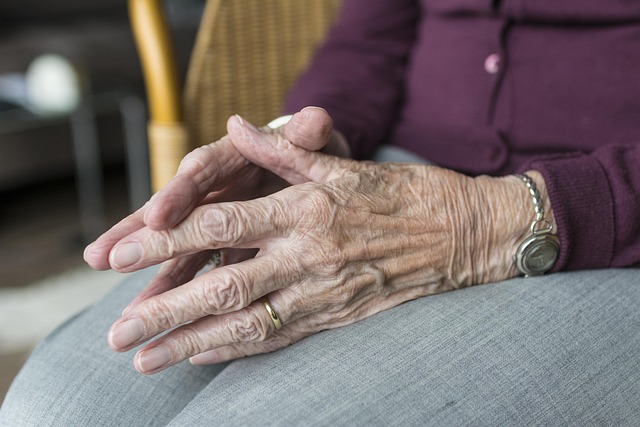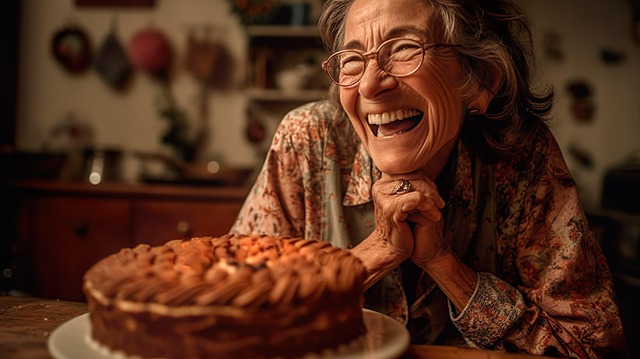Elderly Companion Services are crucial for supporting seniors' independent living by offering emotional and practical assistance, combating loneliness, and enhancing quality of life through companionship, task help, and meaningful interactions. These services create a supportive home environment by adapting spaces, fostering social connection, and promoting independence. Choosing the right service involves matching clients with caregivers based on needs, personality, and preferences, ensuring competent, compassionate care through thorough screening and regular feedback.
Elderly companion services at home provide vital support for aging individuals, enhancing their quality of life. As our population ages, understanding these services and their benefits becomes crucial. This article explores how companionship can improve mental health, promote independence, and enrich daily lives. We delve into creating a supportive in-home environment and the process of matching the right companion based on qualifications. Discover how elderly companion services are transforming care, offering peace of mind for families and a fulfilling role for caregivers.
- Understanding Elderly Companion Services: Benefits and Role
- Creating a Supportive Home Environment for Companionship
- Choosing the Right Companion: Qualifications and Matching Process
Understanding Elderly Companion Services: Benefits and Role

Elderly Companion Services are designed to support and enhance the quality of life for seniors who wish to remain independent in their homes. These services go beyond traditional care, offering companionship and assistance with daily tasks. The benefits are multifaceted; they not only provide emotional support, reducing feelings of loneliness, but also practical help with activities like cooking, cleaning, and transportation, ensuring a higher level of comfort and safety for the elderly individual.
The role of companion services is crucial in maintaining the well-being of seniors. Companions can engage in meaningful conversations, encourage social interaction, and facilitate mental stimulation through shared hobbies or leisure activities. This personalized care approach ensures that the elderly receive not just physical assistance but also emotional and cognitive support, fostering a sense of dignity and self-worth as they age at home.
Creating a Supportive Home Environment for Companionship

Creating a supportive home environment is a key aspect of providing elderly companion services. This involves adapting the living space to cater to the needs and abilities of the elderly individual, ensuring comfort, safety, and accessibility throughout their daily routines. Simple modifications such as installing handrails in bathrooms, adding non-slip mats in high-traffic areas, and organizing essential items within easy reach can make a significant difference in an older adult’s quality of life.
A homely and familiar setting encourages companionship and social interaction, which are vital for combating loneliness and isolation. By fostering a welcoming atmosphere, companion services can facilitate meaningful connections between care providers and the elderly individuals they support. This environment becomes more than just a physical space; it’s a sanctuary that promotes independence, enhances well-being, and provides a sense of belonging.
Choosing the Right Companion: Qualifications and Matching Process

Choosing the right elderly companion is a crucial step in ensuring quality care and a comfortable living environment for seniors. When selecting an elderly companion service, look for professionals who prioritize matching the right caregiver with each client based on individual needs, personality, and preferences. Reputable services conduct thorough screening processes to verify the qualifications and experience of their companions. This includes checking references, verifying certifications (e.g., CPR, first aid), and assessing skills relevant to the senior’s specific requirements.
The matching process should consider factors such as age, health conditions, mobility needs, and cognitive abilities. A good companion service will foster open communication between clients, caregivers, and families to ensure everyone’s expectations are met. Regular feedback and assessment sessions help maintain a suitable match over time, ensuring the elderly receive consistent, compassionate, and competent care in the comfort of their homes.
Elderly Companion Services offer invaluable support, enhancing the quality of life for seniors in the comfort of their homes. By fostering a supportive environment and carefully selecting qualified companions, families can ensure their loved ones receive personalized care and companionship tailored to their unique needs. This article has provided insights into understanding these services, creating an enabling home space, and choosing the perfect companion, empowering you to make informed decisions for the best possible senior care experience.






